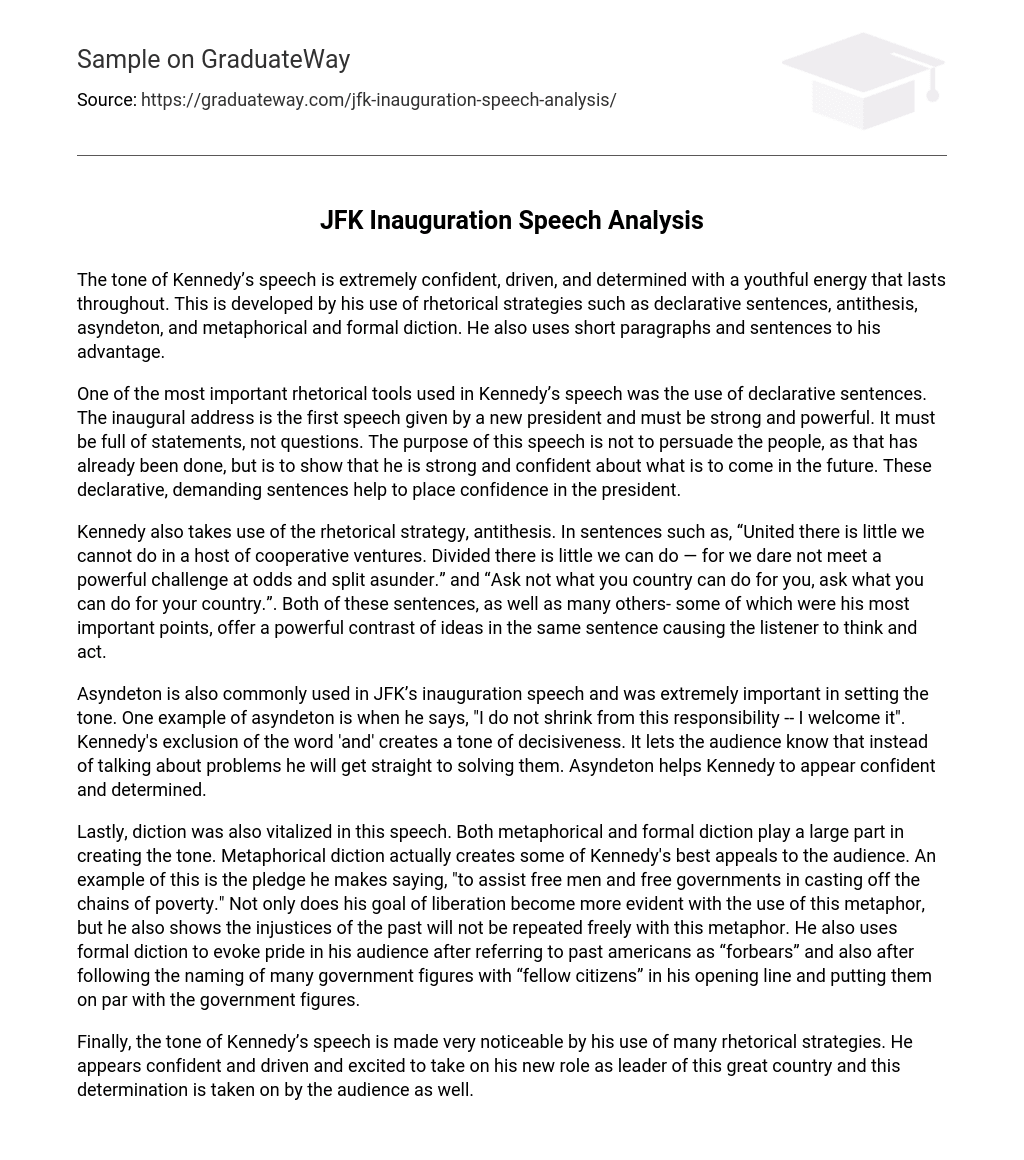The tone of Kennedy’s speech is extremely confident, driven, and determined with a youthful energy that lasts throughout. This is developed by his use of rhetorical strategies such as declarative sentences, antithesis, asyndeton, and metaphorical and formal diction. He also uses short paragraphs and sentences to his advantage.
One of the most important rhetorical tools used in Kennedy’s speech was the use of declarative sentences. The inaugural address is the first speech given by a new president and must be strong and powerful. It must be full of statements, not questions. The purpose of this speech is not to persuade the people, as that has already been done, but is to show that he is strong and confident about what is to come in the future. These declarative, demanding sentences help to place confidence in the president.
Kennedy also takes use of the rhetorical strategy, antithesis. In sentences such as, “United there is little we cannot do in a host of cooperative ventures. Divided there is little we can do — for we dare not meet a powerful challenge at odds and split asunder.” and “Ask not what you country can do for you, ask what you can do for your country.”. Both of these sentences, as well as many others- some of which were his most important points, offer a powerful contrast of ideas in the same sentence causing the listener to think and act.
Asyndeton is also commonly used in JFK’s inauguration speech and was extremely important in setting the tone. One example of asyndeton is when he says, “I do not shrink from this responsibility — I welcome it”. Kennedy’s exclusion of the word ‘and’ creates a tone of decisiveness. It lets the audience know that instead of talking about problems he will get straight to solving them. Asyndeton helps Kennedy to appear confident and determined.
Lastly, diction was also vitalized in this speech. Both metaphorical and formal diction play a large part in creating the tone. Metaphorical diction actually creates some of Kennedy’s best appeals to the audience. An example of this is the pledge he makes saying, “to assist free men and free governments in casting off the chains of poverty.” Not only does his goal of liberation become more evident with the use of this metaphor, but he also shows the injustices of the past will not be repeated freely with this metaphor. He also uses formal diction to evoke pride in his audience after referring to past americans as “forbears” and also after following the naming of many government figures with “fellow citizens” in his opening line and putting them on par with the government figures.
Finally, the tone of Kennedy’s speech is made very noticeable by his use of many rhetorical strategies. He appears confident and driven and excited to take on his new role as leader of this great country and this determination is taken on by the audience as well.





